CASE STUDY
Addressing fraud with Tradefox
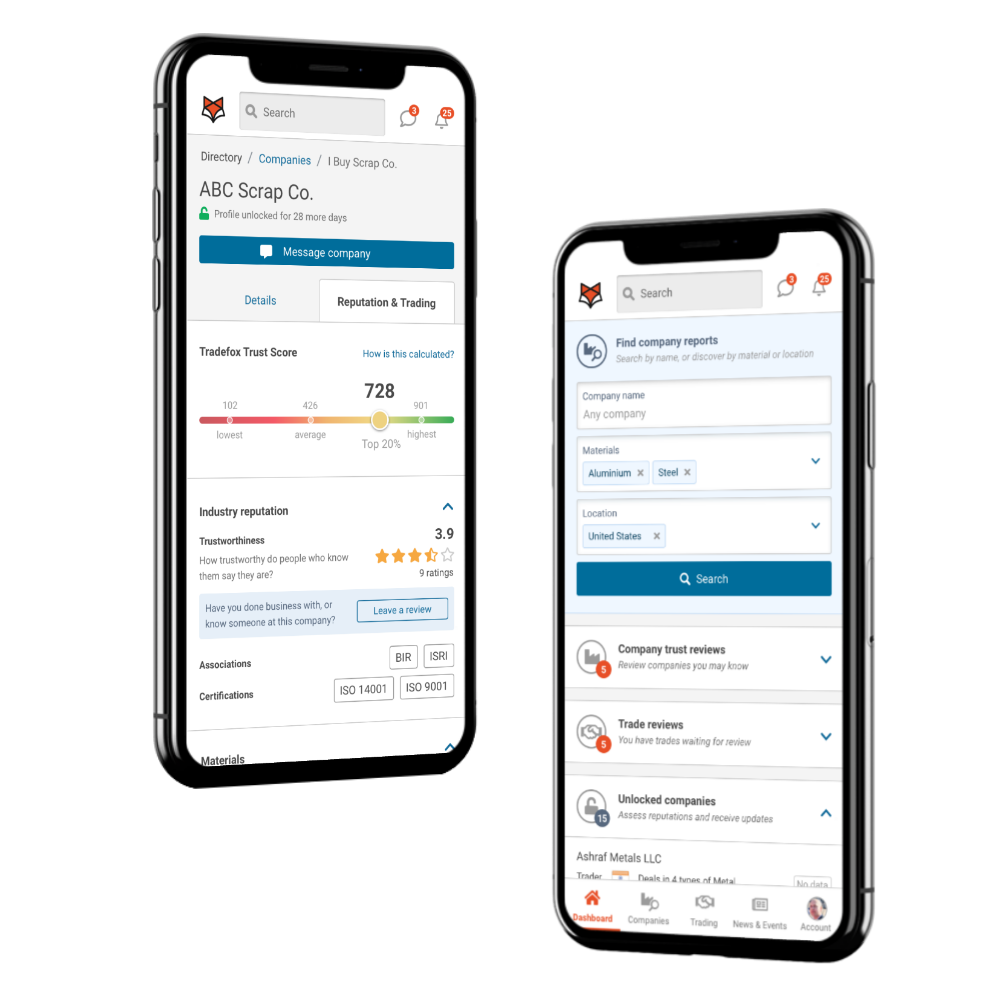
Summary
The scrap trade may seem like a niche industry, but it's a worldwide, billion-dollar operation, key to recycling Earth's resources.
To bring transparency to this old-school, sometimes dangerous industry, we gathered and analyzed public data from disparate sources and created a "credit report" for the scrap industry, helping to uncover fraud and promote honest business practices.
The problem
The scrap trade is fueled by leftovers — for example, metal leftover from production is sold to someone who can melt it down and use it for something else.
Unfortunately, there are many fraudsters who take advantage of this, impersonating reputable businesses, fabricating business histories, and tricking honest professionals into paying for something that doesn't exist. In one case I heard from a Tradefox customer, literal mud was shipped to them, instead of what they paid for. They lost millions, and that's on average.
The solution
One way to solve this is to look at public data — but it's difficult to find and parse, especially for a individual who may not be tech-savvy.
I worked with Tradefox to build a tool that automatically aggregated and processed this data, and designed a meaningful, automatically-updated report for almost any company in the industry. This company report can be purchased and downloaded, an indicator of a company's trustworthiness based on past behavior.
There are three parts to this project: Creating company reports from data, building a qualitative review system, and aiding discovery via searching & filtering.
Part 1 • Building a useful report
Trade data was previously collated manually into reports, so I designed a scalable company profile that automated this process. This always-up-to-date report is accessible to anyone who needs to verify a trade partner.
To design this, I had to understand the myriad of data sources we discovered. Most are publicly available, via various countries' customs databases, but the data is not standardized. I worked with the development team to map all the fields and create an admin interface, where we could assign trades to existing or new companies. This helped us verify which companies were actually conducting business.
While assigning trades, we realized that the sheer volume of data was daunting, even if organized as nicely as possible. Which details prove that a company is legit?
We enlisted the help of a data scientist to develop an algorithm that scores each company, based on all their qualitative and quantitative data. We called it the Tradefox Trust Score.

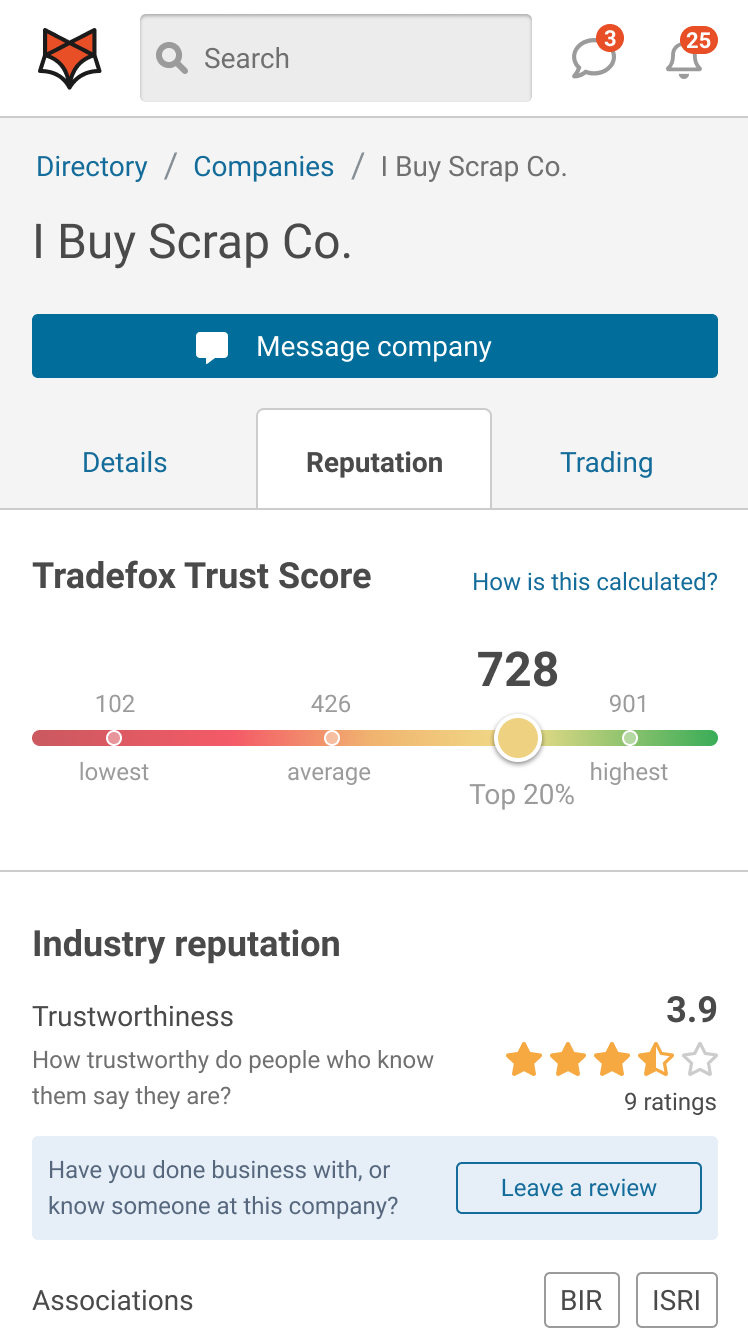
The company report, once unlocked, shows our Trust score, relative to other companies of the same type. Ratings based on their past trades and business from their actual trading partners are shown below.
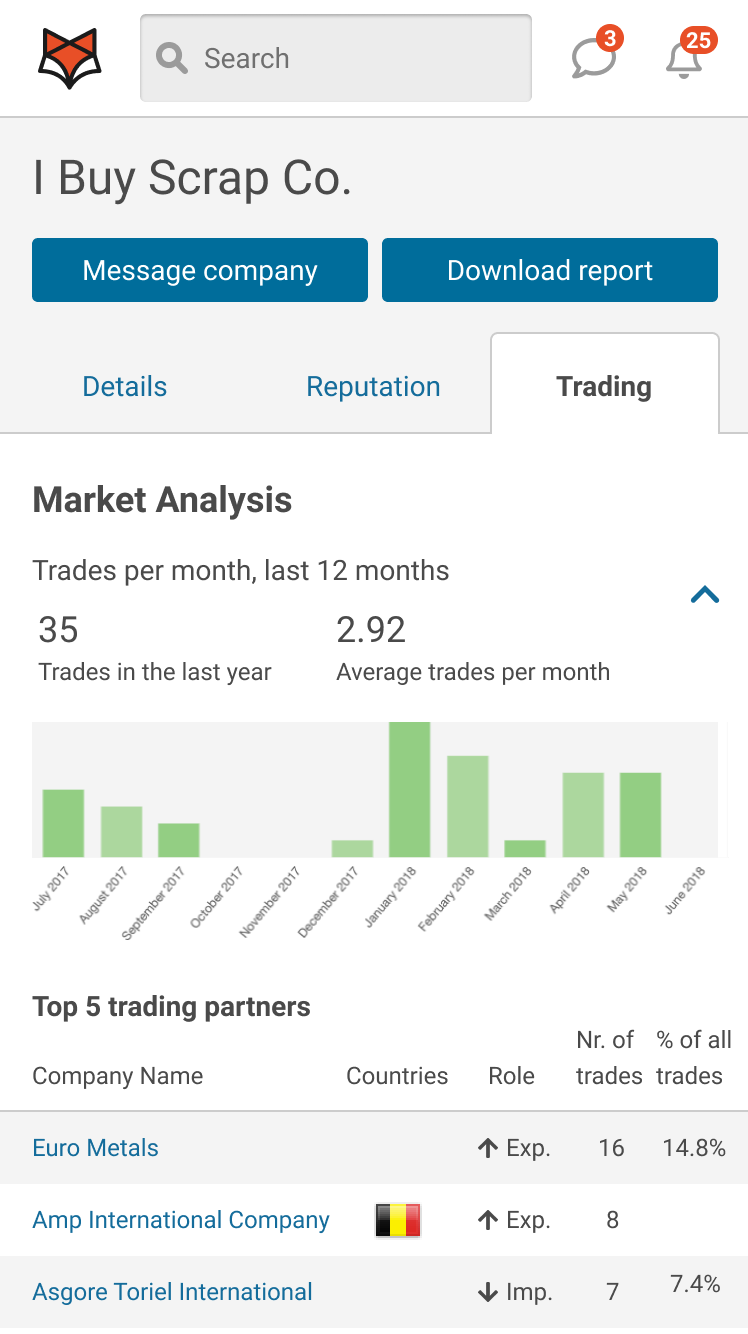
The Trading tab shows actual trade data we have on a company. This is a way to verify that a company is established, lowering the risk of fraud.
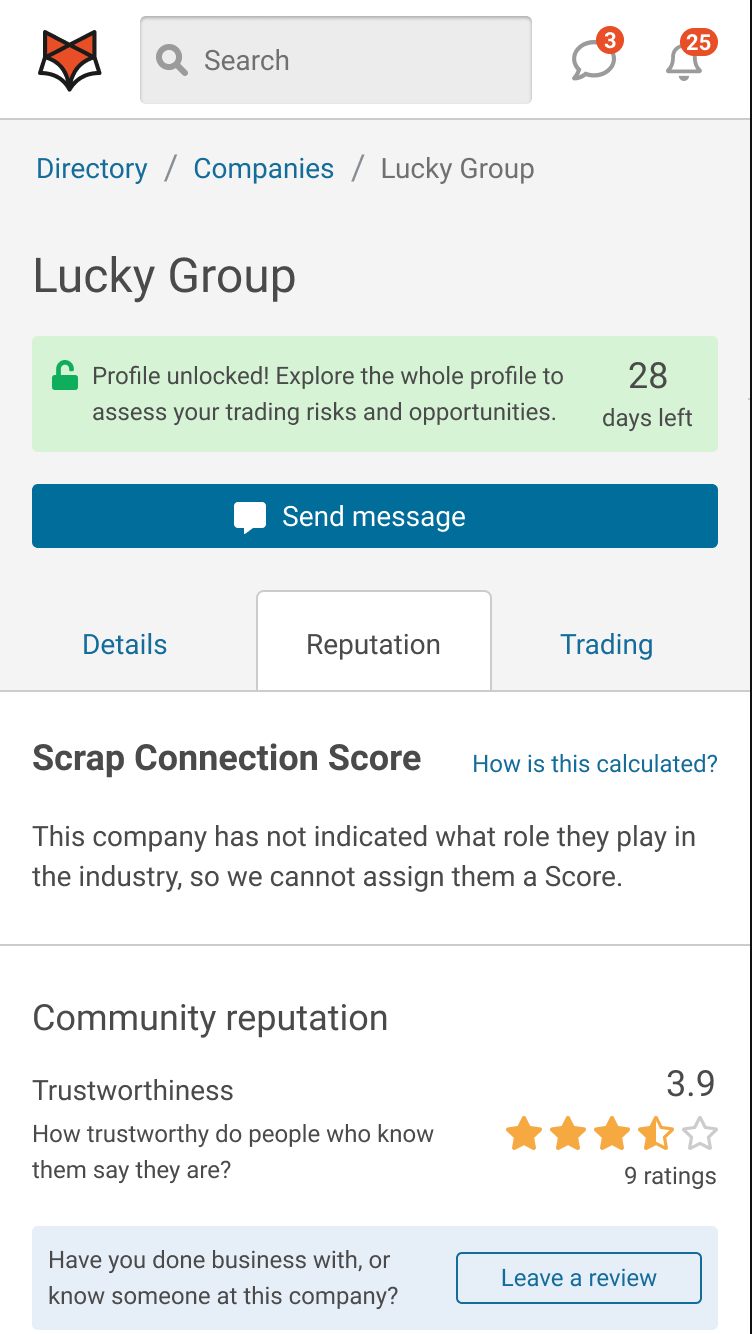
Sometimes, we don't have enough information to assign a Trust Score.
We'll also ask for reviews from people who have done business with this company. This was then vetted by our data scientist.
Part 2 • Creating the scrap trade's only review system
Quantitative information on a company — trade data, company details — can easily be fabricated or impersonated, but real reviews from real people makes a difference in uncovering fraud.
Organizing trades into company profiles allowed Tradefox to build out a trade review system. No other reporting product in the scrap industry has this — a qualitative view of a company's operations.
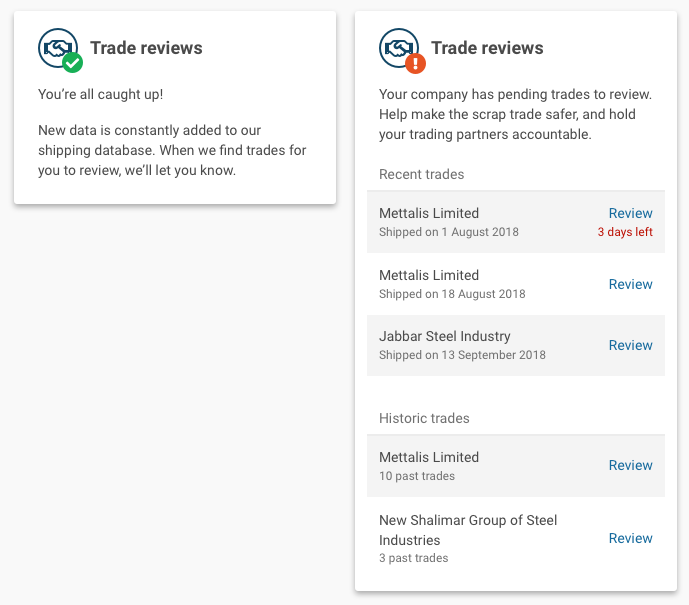
The dashboard shows when new trades are ready for review, in addition to sending an email.
After 30 days, a trade can no longer be individually reviewed — they become "historic trades" and can be reviewed en masse.
This was to allow for reviews of older trades we found from new data sources. Traders may not remember details of the trade, but they'll remember the business practices and integrity of the partner. We wanted to make sure we captured that.
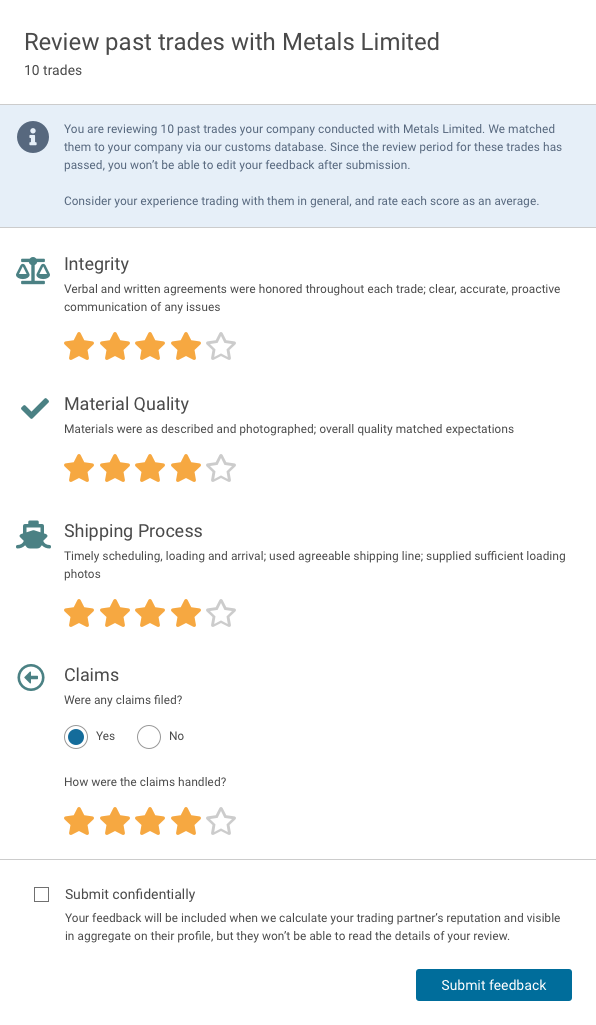
We asked a series of questions about the entire trading process, and allowed them to submit confidentially. This was especially important for negative feedback — as a word-of-mouth industry, people were very sensitive to negative reviews and would lash out, or even blacklist the negative reviewer.
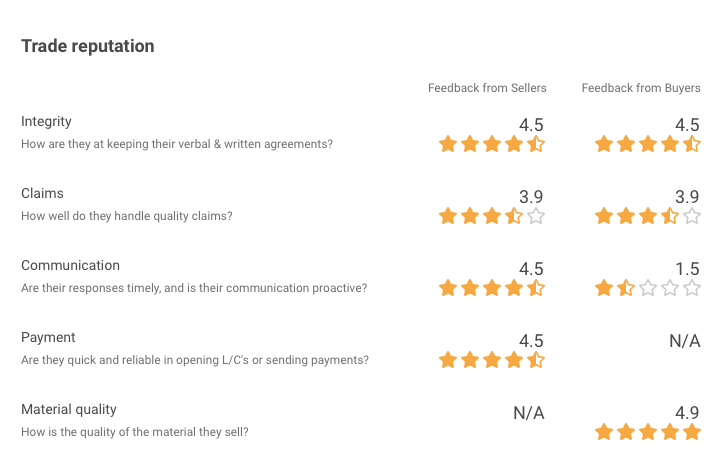
The reviews are aggregated and shown on the relevant company profile. In this case, a trader has both bought and sold material, so separate ratings are needed for each role.
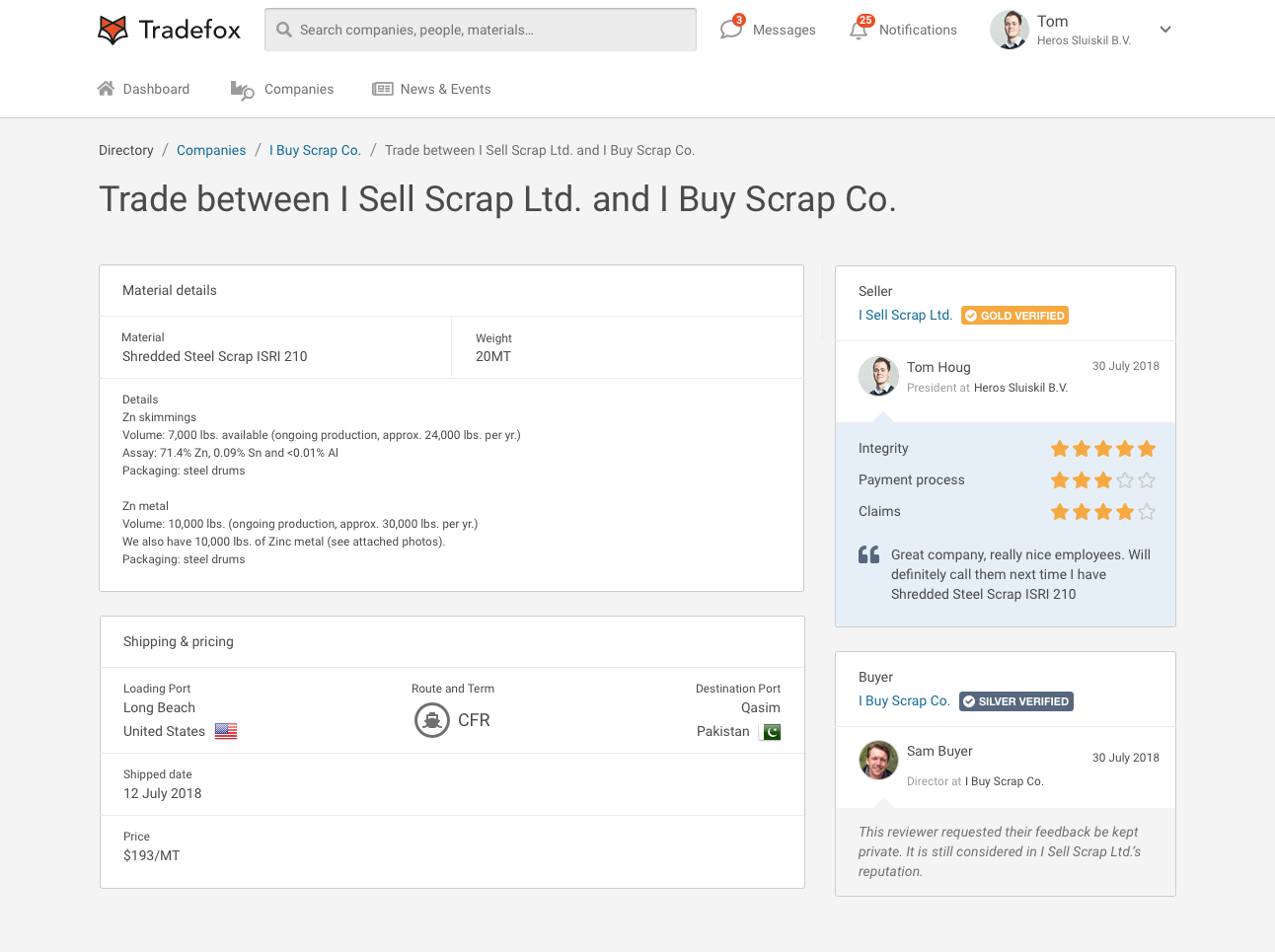
The individual trade page gives all details we know about a trade, including reviews
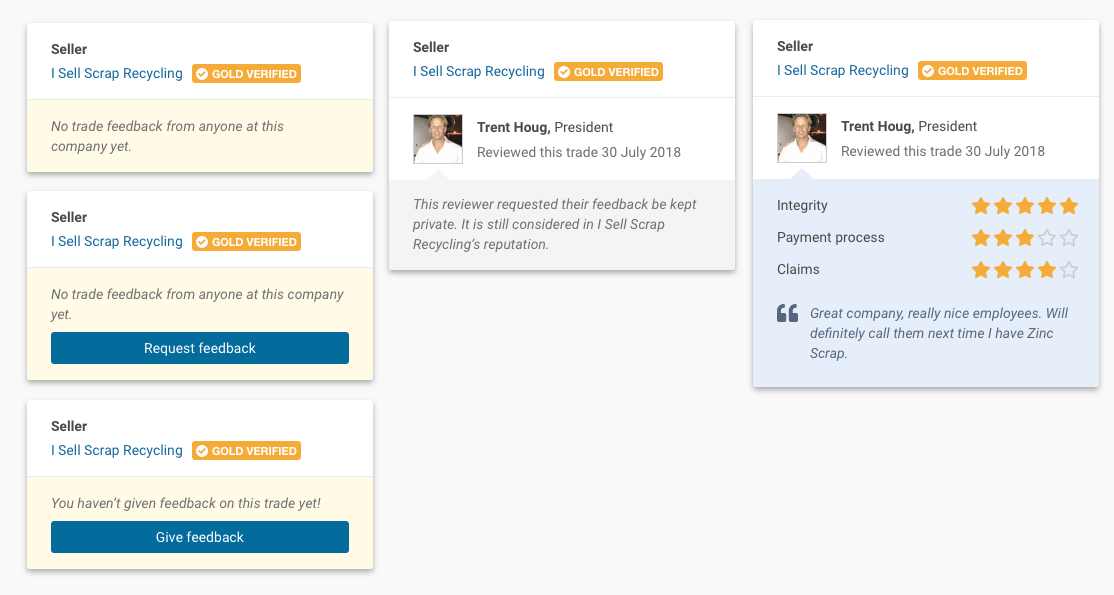
Various states of feedback on the trade review page, including confidential feedback
Part 3 • Aiding discovery of new trading partners
Professionals in the scrap trade discover new trade partners the old-fashioned way: by word-of-mouth. It's difficult and time-consuming to find someone who needs what you're selling, or is selling what you need. After building the reporting and review tools, we had the data that could power a superior search experience to aid discovery.
Traders want to search for potential trade partners in a specific location, based on the prices for their material there. There are also several industry organizations that require certain standards to be met for membership, so filtering on those is a must-have as well.
The key here: they won't know the name of the company they need, and that's where our search stands out. A trader can search for everything but the company name to get a shortlist of potential partners, and investigate their reputations from there. A much shorter process than relying on word-of-mouth.
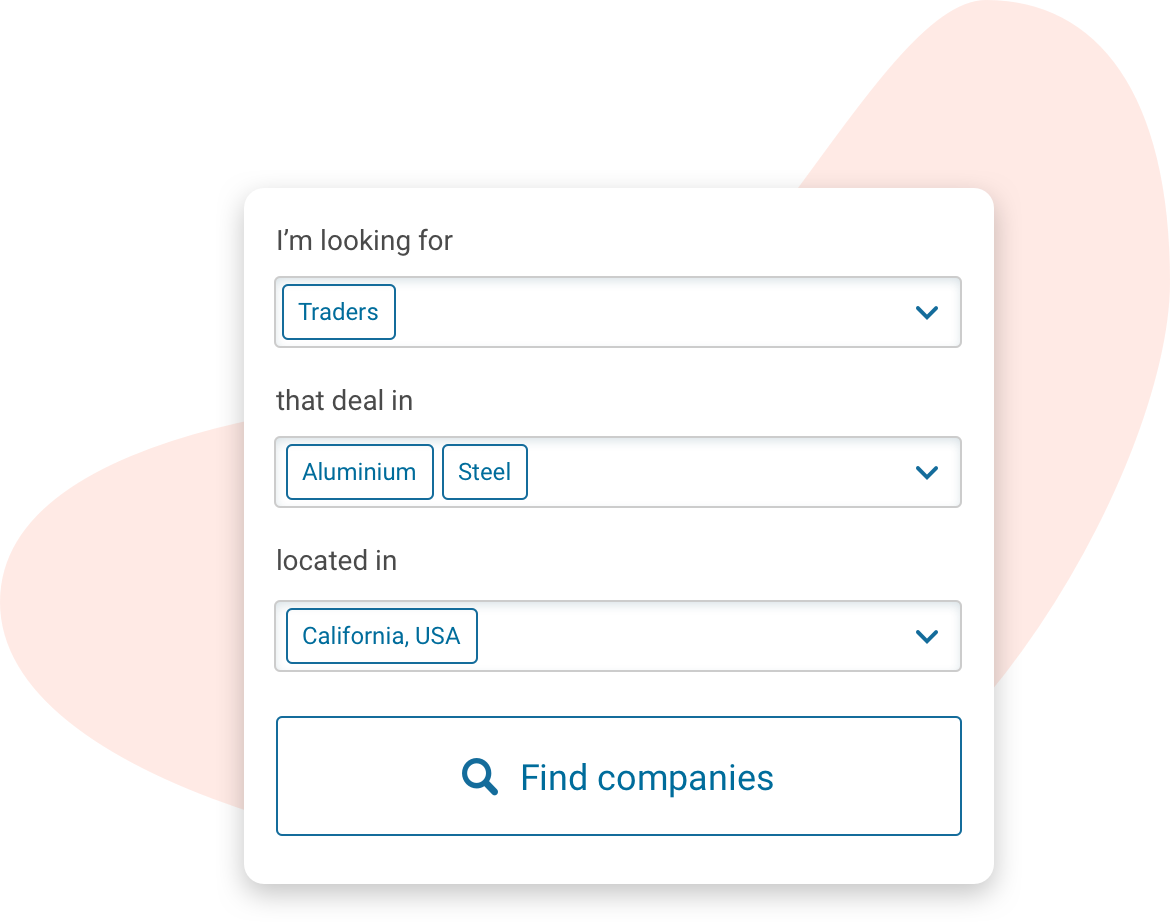
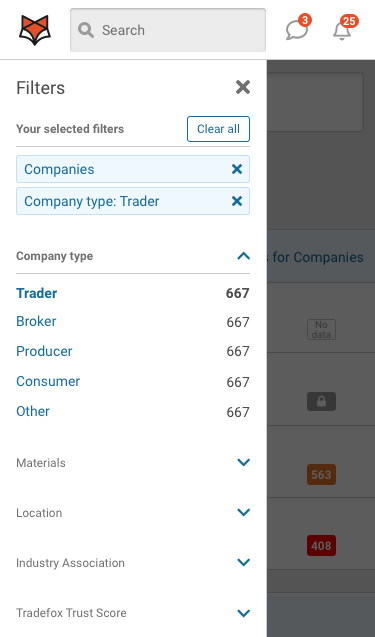
Our filters allowed users to find trade partners based on any of the metrics we organized companies by.
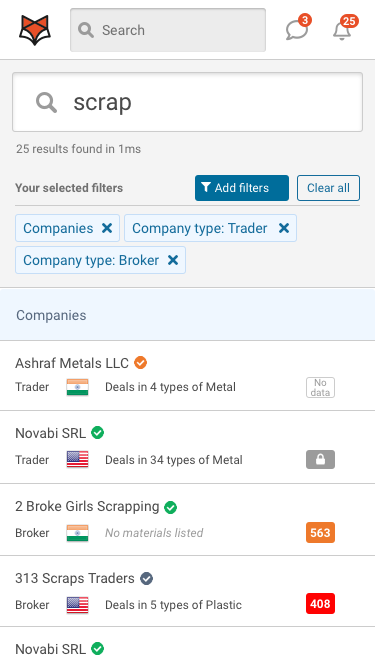
The company name, role, location, and materials were most important indicators for traders that they'd found someone to potentially trade with. We also included our Trust score on search results.
Wrap up
The fully responsive website and app I helped build for Tradefox continues to be a leader in safe trading practices in the scrap industry. I'm proud to have assisted with solving a problem that reduces fraud and helps the environment.
You can see this project, and search a public version of the reports, on the Tradefox website.
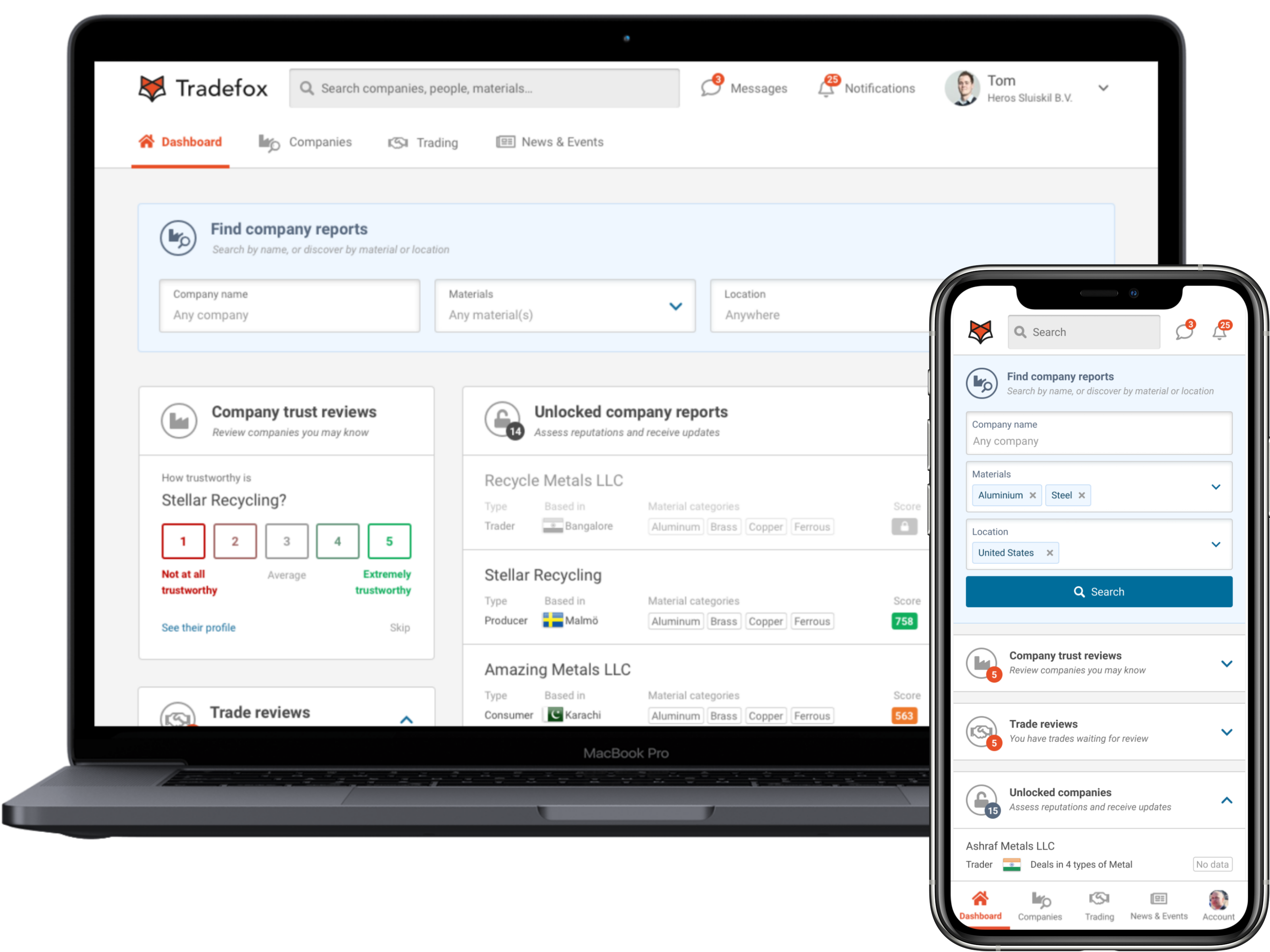
Thanks for stopping by.
© Elena Scherer 2024 · Beaming through the internet to you from Haarlem, Nederland